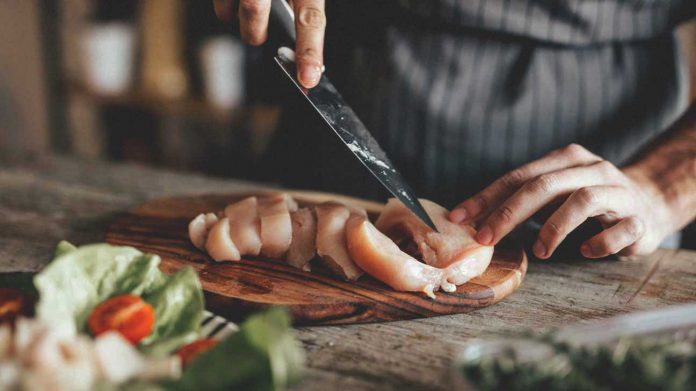Even though we may have grown up eating the same foods, as we age, our bodies become more vulnerable to the hazards associated with diet. The U.S. Centers for Disease Control and Prevention (CDC) caution that after the age of 65, there is an increased risk of suffering from severe food poisoning, making food safety even more crucial.
Top foods that caused illnesses 2009-2018
“A lot of elderly people are in good health and don’t believe they are at a higher risk,” the expert states.
However, kids ought to understand that as we get older, our immune systems deteriorate a little bit, necessitating greater care to keep ourselves healthy.
Cooking food until it reaches a safe internal temperature and eliminates any potentially dangerous germs, viruses, or parasites is advised as a primary precaution by the CDC. Additional precautions include rinsing fresh fruit under running water before eating it, washing your hands with soap and water for 20 seconds before handling food, and avoiding cross-contamination in the kitchen when making meals, especially with raw meat, poultry, shellfish, and eggs.The most frequent disease-causing bacteria linked to each of the seven food categories listed below, along with safety advice to avoid them, are listed by the CDC as potential causes of intestinal illnesses.
1. Chicken, beef, pork and turkey
The two main dangers associated with meats are undercooking and cross-contamination. Wash your hands, cook chicken, beef, hog, and turkey to safe temperatures, and keep raw meat away from other items. Griffin notes that not everyone has a cooking thermometer or uses it frequently, despite the CDC’s recommendation.
Meats from delis: Meats from delis may contain listeria, a bacteria that spreads easily on hands, surfaces, and equipment. It won’t be enough to just put deli meats in the fridge to prevent listeria growth. Heat your deli meats, hot dogs, and sausages to 165°F, or until they are steaming hot, to ensure they are safe to consume. Spreads with meat and pâté: Choose meat spreads that are shelf-stable and have been heat-treated to eliminate any bacteria, providing a safer option for consumption. Some safety advice: Disregard recipes that suggest washing raw meats in water.
Foodborne illness is not prevented by practice, because splattered water can transfer bacteria from raw meat to other food, cutlery, and surfaces.Make sure the meat is cooked through every time. Griffin claims that older folks who enjoy the flavor of rare meat or pork are running a danger.After preparation, leftovers should be chilled to 40 degrees or lower in the refrigerator. To ensure that large chunks of meat cool quickly and don’t harbor bacteria, split them into smaller portions.
2. Fruits and vegetables
Produce can pick up germs anywhere along the way, from the farm where it was grown to the store where it was sold — even from your kitchen counter once you get it home
The secret to safety is to wash properly.”Roughly speaking, raw vegetables are not very dangerous per serving—that is, unless they’re sprouts,” according to Griffin. “Fruits and vegetables are essential components of a balanced diet, and there are countless delicious ways to prepare them.”Melons: Compared to other fruits, melons are more likely to be contaminated with listeria.
Their low acidity allows them to be stored in the refrigerator for an extended period, creating an ideal environment for listeria to thrive.
According to the CDC, people tend to keep melons outside of refrigerators for longer periods of time and at temperatures that are too high.
Be sure to eat freshly cut melon within a week.
Safety advice: Take a 20-second hand wash with warm soapy water before and after handling any produce. Before cooking or consuming, trim away any bruised or torn tissue
When washing produce, always use running water.
Although soaking can initially eliminate the germs, the fruits and vegetables could become contaminated again, as well as other surfaces close by, due to the contaminated water. The Food and Drug Administration of the United States does not advise using commercial produce wash, soap, or detergent.
3. Milk and cheese products
Avoid unpasteurized milk and other dairy products as they have not been cooked to a temperature high enough to destroy hazardous bacteria. Make sure to check the labels of milk and dairy products for the term “pasteurized.”
Even if it’s made with pasteurized milk, soft cheese can still be contaminated during the cheese-making process.
To stay safe, heat sliced deli cheese to 165°F to kill potential pathogens.

























